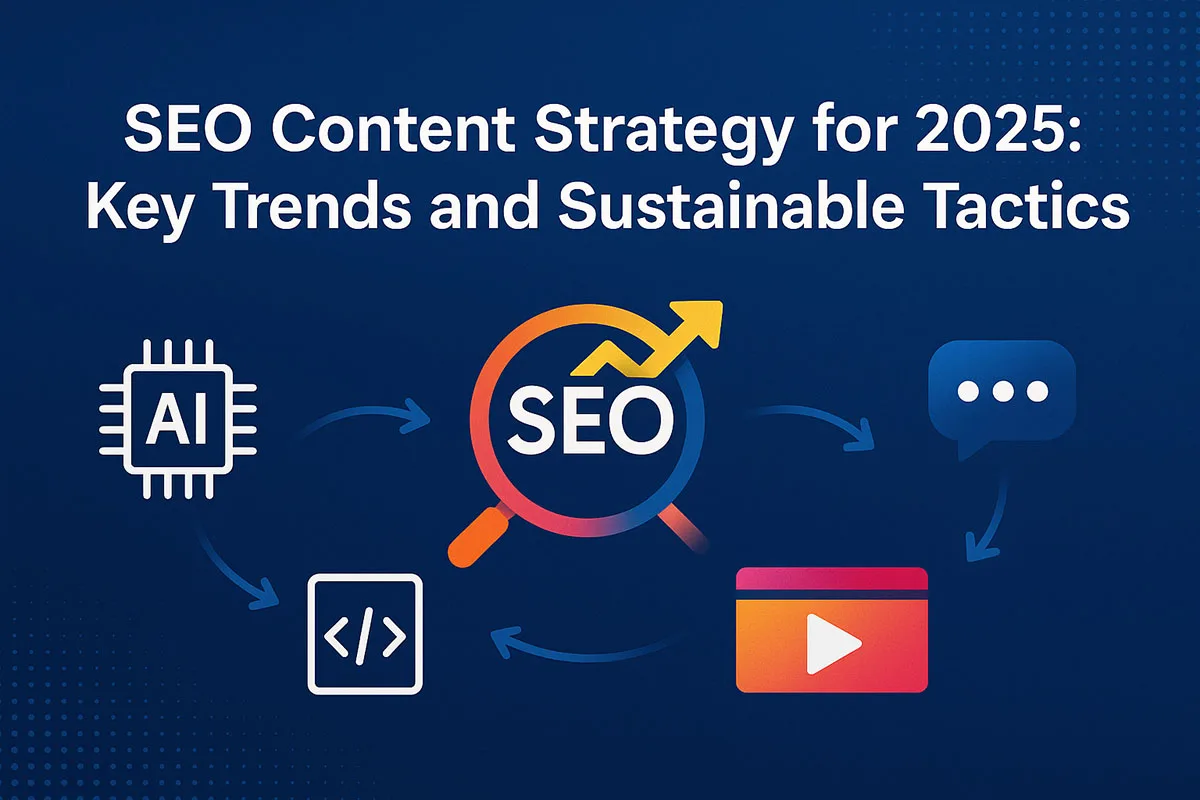SEO Content Strategy for 2025: Key Trends and Sustainable Tactics

Navigating the complexity of algorithm changes, new media types, and shifts in search patterns requires strategies grounded in current insights and sustainable principles. Staying agile and informed empowers brands to improve rankings and deliver content that truly resonates with audiences in an increasingly competitive digital arena.
As we enter 2025, the world of SEO continues to transform rapidly, shaped by technological innovation and changing user behavior. Marketers must actively recalibrate their approach to maintain visibility and outperform competitors, blending innovative tools with proven best practices. For those seeking practical guidance and strategic foresight, implementing an evolving SEO content strategy enhances long-term online success.
AI-Driven Content Creation
Artificial Intelligence is now essential for marketers to scale content and improve SEO, with AI platforms handling keyword research, topic ideas, drafting, and optimization. Effectiveness depends on balancing AI efficiency with human authenticity. Combining algorithmic and editorial skills ensures content meets search intent and encourages user engagement. Companies that blend AI with subject matter expertise benefit most. Bots excel at data tasks, but readers value nuanced perspectives and firsthand stories. So, brands use collaborative workflows where AI manages repetitive work while humans create memorable, authoritative content.
Enhancing E-E-A-T
Google’s ranking systems increasingly reward content that exemplifies Experience, Expertise, Authoritativeness, and Trustworthiness (E-E-A-T). Achieving high E-E-A-T is not a one-off effort—it’s an ongoing process. Adding author bios with relevant qualifications, linking to reputable sources, and integrating accurate, timely data are just a few steps that can elevate perceived credibility. Securing citations from leading industry sites and encouraging mentions by recognized experts further strengthen E-E-A-T signals, directly impacting trust and rankings.

Voice Search Optimization
The growing adoption of digital assistants and smart speakers transforms how users conduct searches. Voice queries are characteristically conversational, well-structured, and often posed as full questions. To optimize for this trend, content creators should leverage natural language and incorporate long-tail keywords reflecting how people speak. Adding FAQ sections that mirror real-life conversational queries further increases the likelihood of being featured in voice search results.
Prioritizing User Experience
User experience (UX) is now a cornerstone of modern SEO success. Google’s Core Web Vitals highlight the importance of fast loading times, stable layouts, and mobile-first design. Effective internal linking, clear calls to action, and intuitive navigation keep visitors engaged and reduce bounce rates. Regularly auditing website speed, mobile responsiveness, and visual consistency using tools like Google PageSpeed Insights can reveal actionable improvements and secure higher search rankings.
Leveraging Video Content
The dominance of video content across platforms such as YouTube, TikTok, and Instagram continues to reshape online engagement. Video increases time on page and shares and influences search engine results directly as Google elevates multimedia-rich pages. Creating compelling, well-optimized videos addressing your audience’s pain points—complete with transcripts, keyword-optimized titles, and descriptions—dramatically boosts discoverability. Ensure each video is supported by relevant metadata, structured data, and a clear call to action, fostering deeper interaction and repeat visits.
Implementing Schema Markup
Schema markup or structured data remains underutilized yet incredibly powerful for enhancing search visibility and feature eligibility (like rich snippets). Adding structured data for elements such as reviews, events, products, and FAQs enables search engines to interpret your content more accurately and display it more attractively in results. Use tools like Google’s Structured Data Markup Helper to implement and validate your schema, making your site eligible for enhanced listings and increasing click-through rates.
Regular Content Audits
Conducting regular content audits—at least quarterly—ensures your content catalog remains current, keyword-targeted, and valuable. These reviews identify pieces needing updating, opportunities to merge or expand thin pages, and gaps where new content can satisfy emerging search intent. Refreshing old posts, optimizing metadata, and removing broken links support SEO and enhance user satisfaction and brand authority. Resourceful marketers keep a simple audit checklist that addresses technical and editorial factors, sustaining continuous improvement over time.
Conclusion
In 2025, SEO success is less about chasing quick wins and more about building sustainable, user-focused strategies. From harnessing AI for content creation to strengthening E-E-A-T signals, optimizing for voice and video, and implementing structured data, the most effective approaches combine technology with authenticity. Prioritizing seamless user experiences and maintaining fresh, credible content ensures brands not only rank higher but also earn trust and loyalty. By committing to regular audits and embracing innovation, businesses can adapt to evolving search behaviors and stay visible in an increasingly competitive digital landscape.
For more insightful articles, please visit Bloghart.
